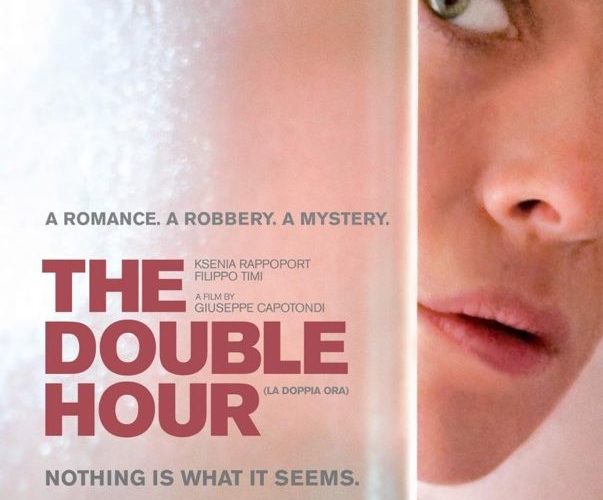 The Double Hour is a well-crafted thriller from Italy, holding our attention, while often keeping us guessing as we get plunged into the cold. The exhilarating second act of the film is the equivalent of waking up in a bathtub full of ice with your kidney missing. To say that nothing is what it seems assumes you are looking for the truth. The Double Hour is as temporarily deceptive as its title implies.
The Double Hour is a well-crafted thriller from Italy, holding our attention, while often keeping us guessing as we get plunged into the cold. The exhilarating second act of the film is the equivalent of waking up in a bathtub full of ice with your kidney missing. To say that nothing is what it seems assumes you are looking for the truth. The Double Hour is as temporarily deceptive as its title implies.
Sonia (Kseniya Rappoport) is a Slovenian immigrant who works as a chambermaid at the type of hotel Dominique Strauss-Kahn would stay at. After witnessing a suicide, she takes to the speed-dating scene (this is precisely what I mean about the rapid transitions that plunge us in cold). While at an event she meets Guido (Filippo Timi), a former police officer who is a star in the speed-dating scene. In ritual he takes women home and refuses to give them his number. Sonia is lonely and has run away from Slovenia, hiding out in Turin – she is on friendly terms with her young and wild co-worker Margherita (Antonia Truppo). Avoiding the advances the young Margherita might have acted on, she gravitates towards Guido.
They eventually depart for the country where Guido has been making a living in private security. What then could turn into a heist movie, becomes something more cerebral and haunting. Surviving the incident, Sonia is left in the cold (along with the audience) as she searches for a missing part of herself. Playing with us (perhaps it is unintentionally funny) is Capotondi’s use of The Cure’s “In Between Days.” Maybe the Italians are more sentimental than us cynical Americans about our popular culture. Then again, I’m sure you’ve had a song that was a key part of the soundtrack in a relationship that haunts you after your lover is potentially murdered in a heist.
The Double Hour is the type of film that is difficult to describe, an elevator pitch of a few lines might get one intrigued, but a full review should not give anyway of the secrets and pleasures of a breathless, energetic thriller. As a reviewer, this is challenging to write about beyond telling you the film indeed delivers the genuine excitement it pitches. Giuseppe Capotondi, with no other feature credits, keeps the trains running on time. While structurally frustrating, Capotondi crafts the rhythm and pace in a style reflecting Sonia’s mental state (including several brilliant point-of-view shots in the second and third act). It is just one of the ways he keeps his audience engaged while leaving us in the dark. When one does it this skillfully, that is no slant.
The Double Hour is currently in limited release.

